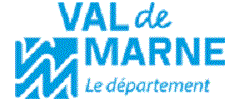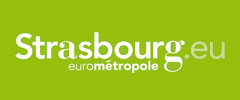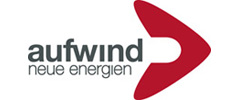Do we need New Alternative Sanitation Systems (NASS) in Germany?
NASS Days, a two days´ conference took place at GIZ in Eschborn, Frankfurt, Germany on the 6th and 7th November 2012
27.11.2012 |WECF

The high adaptability and the potential for cost efficiency of NASS lead to long-term benefits. Such a concept was implemented in the GIZ building in Eschborn in the frame of a scientific project called SaniREsch. The NASS days served as a final conference to present the results of the outphasing project and to inform about other NASS projects in Europe as well.
As core part of the SaniREsch demonstration project, urine from urine diverting toilets was collected in the office rest rooms and treated in the basement of the GIZ building. In this way was demonstrated that an attractive final product can be made out of human urine called struvite, a dry fertiliser containing Nitrogen, Phosphorus and Potassium.
Martina Winker, project leader at GIZ, explained that based on her calculations this system is not economically feasible as such but under specific conditions such as prices for properties and the distance to the agricultural fields.
A potential health risk, the uptake of pharmaceuticals in food plants, was investigated by Bettina Schürmann, RWTH Aachen. She found that the plants can accumulate pharmaceuticals but only in case of spiked urine when a high amount of pharmaceuticals was added to the urine. There was a lively discussion among the participants if any contamination with pharmaceuticals in the plants fertilised with urine is relevant, e.g. compared to the contamination through animal manure applied to the fields or through the drinking water. Max Maurer of EAWAG in Switzerland emphasized that, in spite of scientific evidence, the population´s perception must be considered seriously, as this is often the overriding argument in decision and regulation making.
Elisabeth von Münch, GIZ, put the project in a global context: where an enormous lack of adequate sanitation is present in many parts of the developing world, such a technology would not be the answer. However, the principle of hygienic toilets and the re-use of nutrients and water from them not only saves lives but can contribute to food security and alleviates poverty.
“Who rules the sewer, rules the city”. Antje Stokman, Stuttgart University, emphasized the importance of involving the water and sanitation sector into the city and region planning from the very beginning. E.g. wastewater treatment done in a constructed wetland can be a lively experience for people living in cities which she demonstrated in a master planning for a Chinese town.
To support engineers to consider and design NASS systems in their work, a new draft DWA guideline developed by the DWA working group was presented by Thomas Hillenbach, Fraunhofer Institute. It gives concrete support how to integrate new sanitation components into sanitation and wastewater planning.
Two examples were presented from Sweden and the Netherlands: Brendo Meulman, STOWA, explained some drivers and barriers for new systems replacing the conventional sewerage system which is too expensive and destroys resources. He gave an example where a biogas system for toilet wastewater has been successully installed in a settlement in Sneek. Björn Vinneras, SLU Sweden, gave a number of examples from Sweden where alternative systems were implemented and accepted. He criticized that in too many countries such as India or Vietnam, chemical fertilisers are heavily subsidized which hinders resource oriented sanitation systems to be economically feasible. Both experts explained that the content of the nutrients in excreta helps to make countries more independent from chemical fertiliser.
A key challenge is the acceptance of a new toilet system which requires a different toilet behaviour of the users like the urine diverting toilet does. This was experienced in the GIZ building where UD toilets were installed in the frame of the SaniREsch project. Claudia Wendland, WECF water and sanitation specialist and member of one of the DWA working groups, was chairing the session on acceptance and underlined the importance of this aspect. Involving the users from the beginning and explaining them how to use the toilets properly and why they were installed as well as an adequate and regular cleaning of the toilets are necessary steps to make such implementation a success story also for the users.
Conventional systems become more and more outdated because of unsustainability and too high costs. Tailor-made source separated and decentralised systems for sanitation and wastewater management will be increasingly installed in the coming time. “The sanitation sectors becomes colorful”, concluded Jörg Londong, Professor at Bauhaus University Weimar and chair of the NASS Fachausschuss at DWA.
All results of the SaniREsch project in detail can be read here: www.saniresch.org.The NASS days were organised by GIZ and DWA and funded by the German Ministry of Research.
More information: see the brochure “Do we need New Alternative Sanitation Systems in Germany?”
Related News
Calling for periods free from plastic & hazardous chemicals
Letter to Frédérique Ries, MEP, European Parliament on behalf of the #BreakFreeFromPlastics movement
04.09.2018
Together for sustainable sanitation and water security worldwide!
Stockholm, 26-31 Aug 2018: WECF participated in the World Water Week 2018 to further support the worldwide implementation of SDG 6
01.09.2018
Fifth meeting of the Expert Group on Equitable Access to Water and Sanitation, 26 - 27 June 2018
WECF shares experiences on developing and implementing Equitable Access Action Plans
27.07.2018
National Round Table and Training on Drinking Water Issues and Priorities in Macedonia
Working Package 2 – Educational measures for responsible institutions and drafting of regulations, among the on-going project „Water and Sanitation Safety Planning in Romania, Albania, and FYR Macedonia”
27.07.2018
Training for Teachers on Water and Sanitation Safety Planning
Women in Development and WECF organise a 2-day workshop in Shkodra region, Albania
27.07.2018





































